
Price on Trade: Expect Trump 2.0 to build upon Trump 1.0
After a frenzied election cycle, Donald Trump will return to the White House with an amplified trade agenda.

After a frenzied election cycle, Donald Trump will return to the White House with an amplified trade agenda.

Last week’s Community Chat with international trade attorney and regular SMU columnist Lewis Leibowitz was packed full of valuable perspectives on trade topics near and dear to the steel industry.

The domestic steel tube industry is applauding a federal appeals court decision upholding a ruling that confirms at least one importer misclassified steel conduit imported into the US.
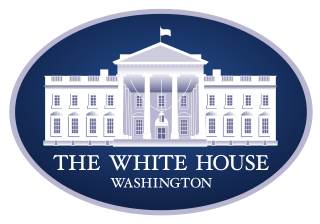
I joined in a Steel Market Update community chat last week. Predictably, many of the questions concerned the likely results of a Trump or Harris victory in the election. Like most people, I don’t know who will win. But by next week I probably will know. Here is my take, with an emphasis on steel policy. There are a surprising number of similarities between the Democratic and Republican candidates’ positions on steel policy. In part, that is because both candidates are going after the same voters—steel workers, whether unionized or not.

September marked the lowest month for steel imports so far this year, according to preliminary Census data released by the Commerce Department.

Earlier this month, Nippon Steel announced that it is applying for subsidies under the Japanese government’s Green Transformation Promotion Act to expand the company’s electric furnace steelmaking capabilities and to convert from blast furnace to electric furnace operations. As we have said before, transitioning from blast furnace- to electric furnace-based steelmaking is a good thing […]

In this Insight piece, CRU economists explore the possible economic effects of Trump's and Harris' agendas.
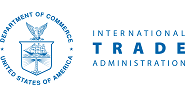
The US Department of Commerce is conducting annual administrative reviews of antidumping and countervailing duty (AD/CVD) orders on certain imports of steel pipe and tube.

The Canadian government announced a remission process for businesses for recently announced tariffs on Chinese steel and aluminum products and electric vehicles .

China’s burgeoning exports are causing major angst all over the world. In the US, the increases are spawning calls for more restrictions on China, some of which might work a bit, but will likely cause more harm than good for the world at large.

The US International Trade Commission (ITC) has decided to conduct full sunset reviews of 23-year-old anti-dumping and countervailing duties (AD/CVD) on hot-rolled (HR) steel imports.
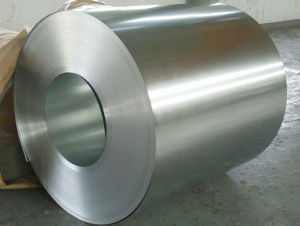
On Friday, the US International Trade Commission (ITC) voted to continue the trade case investigation of corrosion-resistant (CORE) steel imports from 10 trading partners.

Ankara has placed anti-dumping duties of ranging from 6.10% to 43.31% on hot-rolled steel sheet from China, India, Japan, and Russia. Meanwhile, Malaysia has announced it will investigate allegedly dumped steel wire rod from China, Indonesia, and Vietnam.
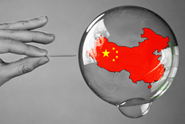
The Global Forum on Steel Excess Capacity (GFSEC) reaffirmed on Oct. 8 what domestic steel producers have long known—the threat of excess steel capacity never disappeared and is evolving. China’s steelmakers are boosting capacity and exports, echoing the 2016 global steel crisis. There is no doubt that China is successfully weaponizing excess capacity across many industries, and the fatal damage to domestic production and national security undermines the interests of all market-oriented countries. The question now is: How will GFSEC countries respond?

The US has banned imports from a subsidiary of the world’s largest steelmaker because it is allegedly using forced labor to produce steel products.

China is challenging Canada’s decision to put tariffs on imports of Chinese steel, aluminum, and electric vehicles.

By most accounts, the issues that are most important for voters in this election are the economy, immigration, and abortion. International trade policy plays a key role in at least two of those three (the economy and immigration). Both presidential candidates recognize that trade and tariffs are an important focus. And “America first” is a rallying point for both candidates.

On Thursday, the Department of Commerce announced it would initiate investigations into coated steel imports from ten countries.
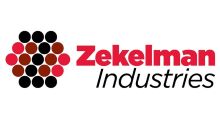
Barry Zekelman, chairman and CEO of Zekelman Industries, says the import data unquestionably supports the fact that imports of Mexican conduit have been surging into the US market.
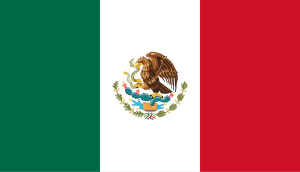
US presidential campaigns frequently sport an “air of unreality.” No more so than the 2024 campaign, where superlatives fly around like mosquitos. Steel trade has been a feature of political discourse for at least half a century now. Just last week, it proceeded to a new level of “unreality.” Four senators - Bob Casey (D-Pa.), Sherrod Brown (D-Ohio), Marco Rubio (R-Fla.), and Mike Braun (R-Ind.) - wrote a “bipartisan” letter attacking Mexican exports of steel to the United States. They framed it as a “surge” in US steel imports from Mexico. To address this “surge,” the Senators urge the imposition of 25% tariffs on all steel imports from Mexico.

Continued highly competitive steel exports from China, amid weakening global demand, have triggered a wave of trade protectionism across major markets.

SMU has compiled a list of key dates to watch out for in the expansive trade case filed last week targeting corrosion-resistant steel imports.

The Commerce Department said imports of Chinese pipe will continue to benefit from significant government subsidies if the US countervailing duty (CVD) order against them is allowed to expire.

Ternium USA Inc. has requested a host of Section 232 tariff exclusions since the US reimposed the duties on Mexican steel earlier this summer. Domestic steelmakers, however, are pushing back.
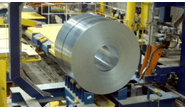
Domestic steel producers and the United Steelworkers (USW) union filed a barrage of trade cases last week. This is hardly news. Ever since the Commerce Department ruled that Vietnam is still treated as a nonmarket economy (NME) for antidumping purposes, many in the business expected new cases on the product that Vietnam excels at—“corrosion-resistant steel.” Nor is it a surprise that these cases roped in nine countries in addition to Vietnam: Australia, Brazil, Canada, Mexico, the Netherlands, South Africa, Taiwan, Turkey, and the United Arab Emirates. All these countries rank in the top ten exporters of corrosion-resistant steel to the United States. These petitions are a broadside against coated flat-rolled steel imports.

Domestic mills have alleged substantial dumping margins in the trade case targeting imports of corrosion-resistant steel.

US mills have filed or soon will file a sprawling trade petition against imports of coated flat-rolled steel from 10 countries. The petition seeks anti-dumping margins against Canada, Mexico, Brazil, the Netherlands, Turkey, the United Arab Emirates, Vietnam, Taiwan, Australia, and South Africa. It also seeks countervailing duty margins against Canada, Mexico, Brazil, and Vietnam. That’s according documents dated Sept. 5 and addressed to Commerce Secretary Gina Raimondo and International Trade Commission (ITC) Secretary Lisa Barton.
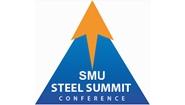
Trade is always front and center in an election year. And 2024 is no different. There is no shortage of issues, with questions like the sale of U.S. Steel to Japan’s Nippon Steel, potential cracks in the USMCA, and Chinese overcapacity dominating the headlines. But how do you distinguish between issues that might just last until November, and what are the crucial questions that could affect your business for years to come?

https://www.brown.senate.gov/newsroom/press/release/sherrod-brown-casey-fetterman-biden-administration-level-playing-field-american-octg-industry

CANACERO's General Director Salvador Quesada Salinas shares his thoughts on the Mexican steel trade 'myth' and what US trade data really shows.